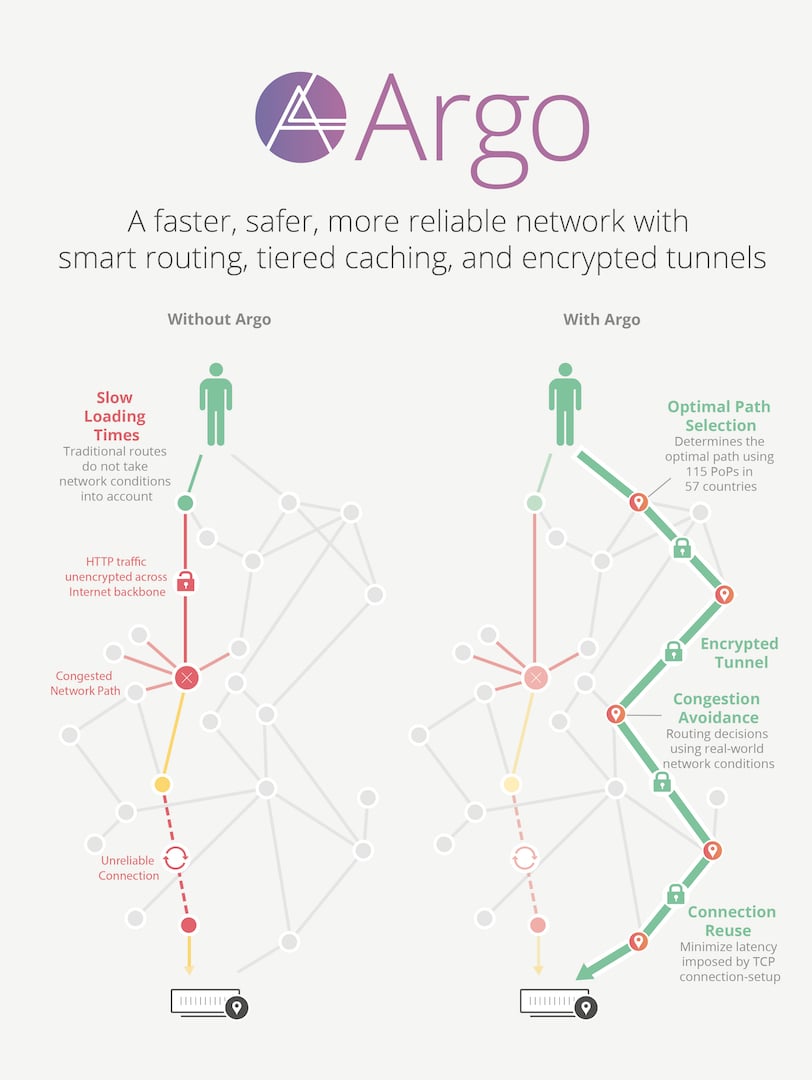

Some apps can still see what you’re doing, as can websites and Cloudflare itself. What you don’t get is complete anonymity. In summary: if you don’t want your ISP to monitor which websites you visit, or want an extra layer of security when using public Wi-Fi, Warp is a simple way to ensure that for most sites – even if HTTPS and browsers such as Firefox and Opera already do much the same job. In addition, Warp also excludes traffic to certain “over-the-top content provider websites, as determined by Cloudflare in its sole discretion,” from its network, which presumably refers to services such as Netflix, Hulu or Amazon. Websites visited see the real IP address of the user, which they wouldn’t with a true VPN. However, the site is careful not to claim it can spoof or hide IP addresses as a VPN would. To make this fast, the traffic always enters Cloudflare at the nearest server to the user and exits from the network at a point closest to where the website is hosted. Once connected, Warp behaves more like an optimised global routing network based on what Cloudflare calls ‘Argo Smart Routing’. Warp creates a VPN-like encrypted tunnel between the user and Cloudflare using an open-source protocol called WireGuard, which encapsulates TCP inside UDP. This is why VPNs have become a popular way to dodge geographic restrictions placed on streaming content such as Netflix or the BBC. The server may be in a different country to the user and some commercial VPNs allow users to choose which country they appear to be browsing from. The privacy benefit of a VPN is that a user’s traffic appears to originate from the trusted server rather than their own device. The security benefit of a VPN is that it lets a user send traffic via a provider they trust (the VPN company) while hiding it from others they don’t trust (ISPs, Wi-Fi snoopers and bad actors, which can’t). Traditional VPNs route a user’s network traffic to a trusted, internet-connected server, via an encrypted ‘tunnel’. Note that if you signed up for the Warp waiting list via the 1.1.1.1 app, you also get the chance to try Warp+ free of charge with an initial 10GB of data. What does the Warp+ subscription add to this? Despite being limited to one device, the user gets unlimited bandwidth and 30% better performance thanks, Cloudflare says, to Warp+ traffic being routed over its global network in an optimised way.
Cloudflare warp full#
Now 1.1.1.1 has become ‘ 1.1.1.1 with Warp’ by adding the ability to encrypt all traffic from the mobile device and not just DNS queries, hence the similarity to a full VPN. More recently, the 1.1.1.1 app added support for the emerging encrypted DNS standards, DNS-over-HTTPS (DoH) and DNS-over-TLS (DoT), which hide the domains people visit from ISPs and anyone else listening in (Mozilla recently integrated this service into Firefox). The first, Warp, is a development of the 1.1.1.1 service and mobile apps launched in 2018 as an alternative DNS resolver that headlined on the theme of privacy – i.e.
Cloudflare warp android#
That sounds confusing so let’s start by describing the service itself, which can be accessed via a free Android and iOS app called Warp, and a $4.99 per month subscription app called Warp+.

If it is not installed on your device, download it here.As promised in April, Cloudflare has finally launched Warp, a consumer mobile privacy app that looks a lot like a VPN without actually being one.Open a cmd or terminal or shell in the extracted directory.
Cloudflare warp install#
First download python and install in your system.
Cloudflare warp how to#
How to use this script on ( windows, mac, linux ) Read more About Script warp-plus-cloudflare (wp-plus.py)Ī project for getting unlimited GB on Warp+ ( ) Deploy to heroku WARP+ uses Cloudflare’s virtual private backbone, known as Argo, to achieve higher speeds and ensure your connection is encrypted across the long haul of the Internet.


 0 kommentar(er)
0 kommentar(er)
